
Robert Powell is a British actor who is known for the title roles in Mahler (1974) and Jesus of Nazareth (1977), and for his portrayal of secret agent Richard Hannay in The Thirty Nine Steps (1978) and its subsequent spinoff television series. Other major screen roles have included Tobias "Toby" Wren in the BBC science-fiction programme Doomwatch (1970), David Briggs in the sitcom The Detectives (1993–1997) alongside Jasper Carrott, and Mark Williams in the medical drama Holby City (2005–2011).

A Hardanger fiddle is a traditional stringed instrument considered to be the national instrument of Norway. In modern designs, this type of fiddle is very similar to the violin, though with eight or nine strings and thinner wood. The F-holes of the Hardanger fiddle are distinctive, oftentimes with a more "sunken" appearance, and generally straighter edges. Four of the strings are strung and played like a violin, while the rest, named understrings or sympathetic strings, resonate under the influence of the other four. These extra strings are tuned and secured with extra pegs at the top of the scroll, effectively doubling the length of a Hardingfele scroll when compared to a violin. The sympathetic strings, once fastened to their pegs, are funneled through a "hollow" constructed fingerboard, which is built differently than a violin's, being slightly higher and thicker to allow for these extra strings. The resonant strings lie on the center of the special bridge, attached to extra hooks on the tailpiece. Carved out within the center of the bridge is a smaller secondary "bridge", or opening, designed specifically for these resonant strings to pass through. This is where the resonance is picked up and reverberated; as notes are played, the vibrations are sent through the bridge, where the sympathetics echo those notes.

Old-time music is a genre of North American folk music. It developed along with various North American folk dances, such as square dancing, clogging, and buck dancing. It is played on acoustic instruments, generally centering on a combination of fiddle and plucked string instruments, most often the banjo, guitar, and mandolin. The genre is considered a precursor to modern country music.
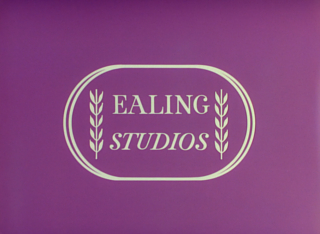
The Ealing comedies is an informal name for a series of comedy films produced by the London-based Ealing Studios during a ten-year period from 1947 to 1957. Often considered to reflect Britain's post-war spirit, the most celebrated films in the sequence include Kind Hearts and Coronets (1949), Whisky Galore! (1949), The Lavender Hill Mob (1951), The Man in the White Suit (1951) and The Ladykillers (1955). Hue and Cry (1947) is generally considered to be the earliest of the cycle, and Barnacle Bill (1957) the last, although some sources list Davy (1958) as the final Ealing comedy. Many of the Ealing comedies are ranked among the greatest British films, and they also received international acclaim.
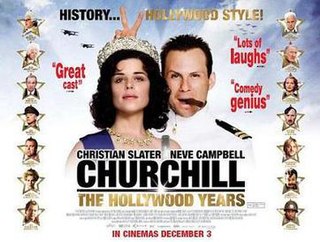
Churchill: The Hollywood Years is a 2004 British comedy film directed by Peter Richardson, who also wrote the screenplay with Pete Richens. The film stars Christian Slater as Winston Churchill, and Neve Campbell as Elizabeth II. Miranda Richardson and Antony Sher also co-star.

Thomas Edward Trinder CBE was an English stage, screen and radio comedian whose catchphrase was "You lucky people!". Described by cultural historian Matthew Sweet as "a cocky, front-of-cloth variety turn", he was one of the United Kingdom's foremost entertainers during the Second World War.
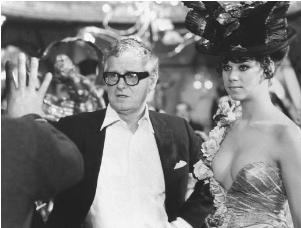
Basil Dearden was an English film director.
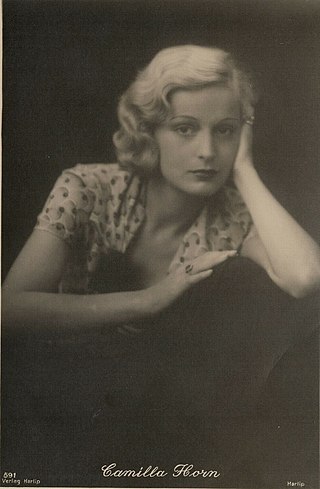
Camilla Martha Horn was a German dancer and a film star of the silent and sound era. She starred in several Hollywood films of the late 1920s and in a few British and Italian productions.
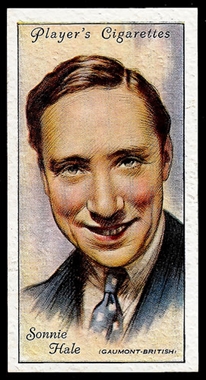
John Robert Hale-Monro, known as Sonnie Hale, was an English actor, screenwriter, and director.

The Sign of the Cross is a 1932 American pre-Code epic film produced and directed by Cecil B. DeMille and released by Paramount Pictures. Based on the original 1895 play by English playwright Wilson Barrett, the screenplay was written by Waldemar Young and Sidney Buchman. It stars Fredric March, Elissa Landi, Claudette Colbert, and Charles Laughton, with Ian Keith and Arthur Hohl.
Raymond Egerton Harry Watt was a Scottish documentary and feature film director, who began his career working for John Grierson and Robert Flaherty.
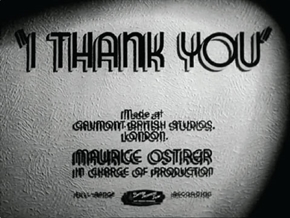
I Thank You is a 1941 black and white British comedy film directed by Marcel Varnel and starring Arthur Askey, Richard Murdoch, Graham Moffatt and Moore Marriott. It was produced by Edward Black at Gainsborough Pictures.
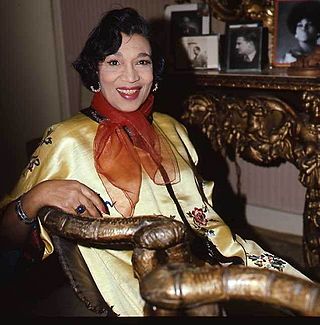
Elisabeth Margaret Welch was an American singer, actress, and entertainer, whose career spanned seven decades. Her best-known songs were "Stormy Weather", "Love for Sale" and "Far Away in Shanty Town". She was American-born, but was based in Britain for most of her career.
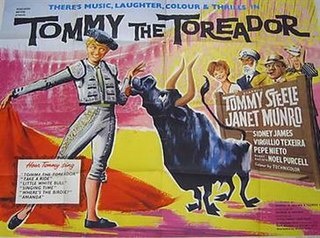
Tommy the Toreador is a 1959 British musical comedy film directed by John Paddy Carstairs and starring Tommy Steele, Janet Munro, Sid James, Bernard Cribbins, Noel Purcell and Kenneth Williams.

Adelphi Films Limited was a British film production company. With its sister company Advance, it produced over 30 films in the 1940s and 1950s and distributed many more. Adelphi linked Gainsborough Pictures and the raw “kitchen sink” dramas of the early 1960s.
Sailors Three is a 1940 British war comedy film directed by Walter Forde and starring Tommy Trinder, Claude Hulbert and Carla Lehmann. This was cockney music hall comedian Trinder's debut for Ealing, the studio with which he was to become most closely associated. It concerns three British sailors who accidentally find themselves aboard a German ship during the Second World War.
Michael McCarthy was a British screenwriter and television and film director. He entered the film industry in 1934 and worked at the Crown Film Unit.

Bell-Bottom George is a 1943 black and white British comedy musical film, directed by Marcel Varnel, starring George Formby and Anne Firth. A wartime morale booster, it features the songs, "Swim Little Fish", "It Serves You Right", "If I Had A Girl Like You" and "Bell Bottom George." Future Carry On star Charles Hawtrey appears in a small role.

The Impersonator is a 1961 low-budget black and white British second feature thriller film directed and co-written by Alfred Shaughnessy starring John Crawford, Jane Griffiths, Patricia Burke and John Salew. An American angle was incorporated to give transatlantic box office appeal.
This is a summary of 1940 in music in the United Kingdom.
















